Ambulance strike: Wales workers strike again over pay and conditions
- Published
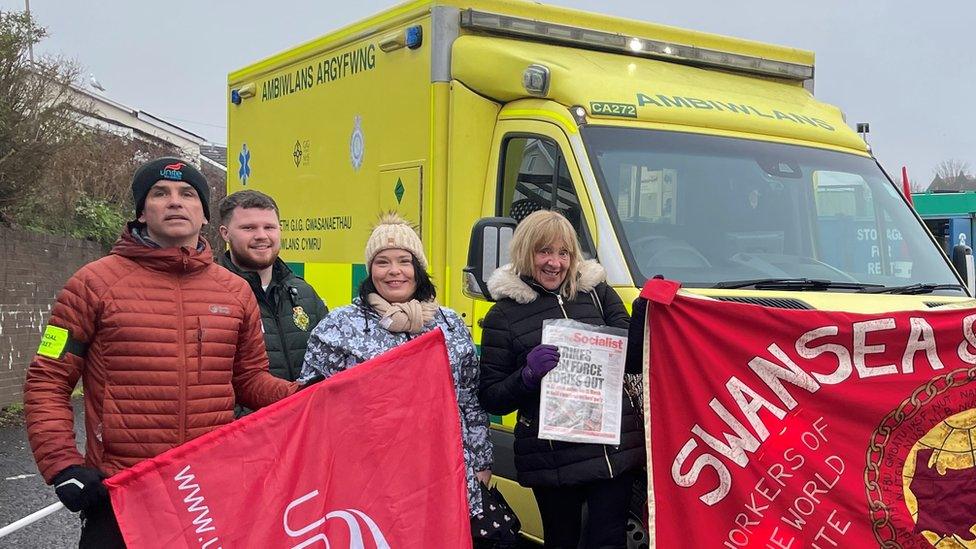
Unite members are striking on Monday, Tuesday and Wednesday, and will be joined by GMB members on Monday
More than half of Wales' ambulance workers have gone on strike in a continued dispute over pay and working conditions.
Unite and GMB members are striking on Monday, with Unite members also set to walk out on Tuesday and Wednesday.
Unite's Richard Munn said the current offer was "not good enough" for workers who are at "breaking point".
The Welsh government previously said it was "disappointed" its 3% pay offer for 2022-23 was rejected.
This was on top of the average 4.5% that was paid to health workers last autumn.
"At the moment the offer is not sufficient, there needs to be movement somewhere, whether it's on pay or working conditions," said Mr Munn.
He said 92% of members had rejected the latest offer, which he said had come off the back of "a decade of real term pay cuts".
'Salaries not reflecting skills'
Mr Munn said that staff working in the command centre, who take calls from the public and give advice in emergency situations, start on £11.11 an hour.
"That's why our members are saying these salaries do not reflect the skills, the care, the experience, the knowledge and the responsibility our members have," he said.
"We are open, my phone's on, I'm willing to drop everything to meet with Welsh government to resolve this dispute."
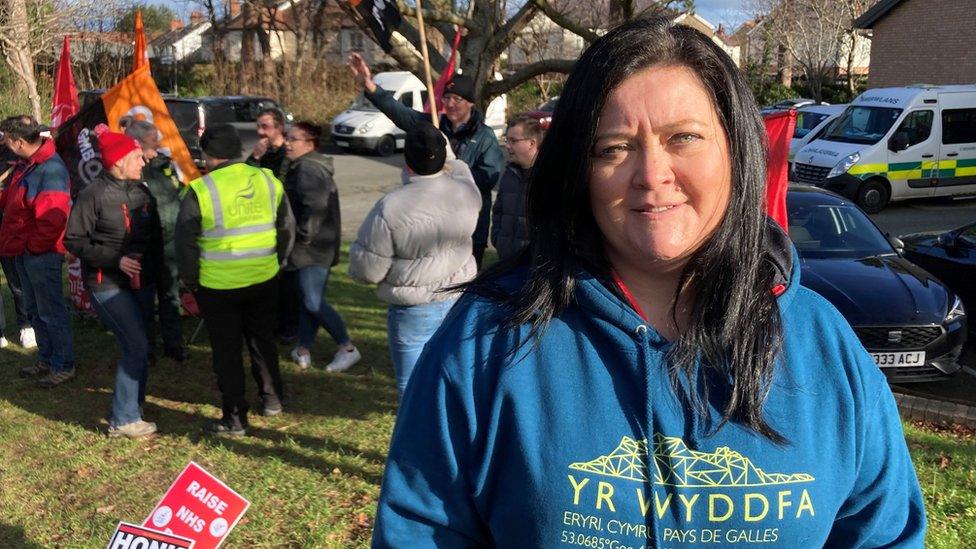
Manon Williams says the strike is not just about money, but issues such as the long waits for ambulances outside hospitals
Manon Williams, 50, a paramedic in Wales since 1995, said the service was "failing dramatically" due to the long ambulance wait times outside hospitals.
"It's not just about the pay, it's about the NHS as a whole," said Ms Williams, on the picket line at Colwyn Bay ambulance station.
"We are failing the public every single day with the delays at hospitals It's something that just can't carry on. It's not fair on the community, it's not fair on the public, it's not fair on the staff - it's just too much pressure."
'It's really demoralising'
Emergency medical technician and trainee paramedic Joanne Jones, 45, agreed that the strike was about more than wages.
"It's not just about the money, it's about working conditions and the NHS in general. We can spend up to 12 hours sat outside a hospital with just the one patient," said Ms Jones, a Unite member.
"We can end up doing 14-hour shifts when it should be 12, and without a break because there's no way of getting back to a station or finding anyone to relieve us.
"We basically can't do our job. It's demoralising, it's really demoralising."
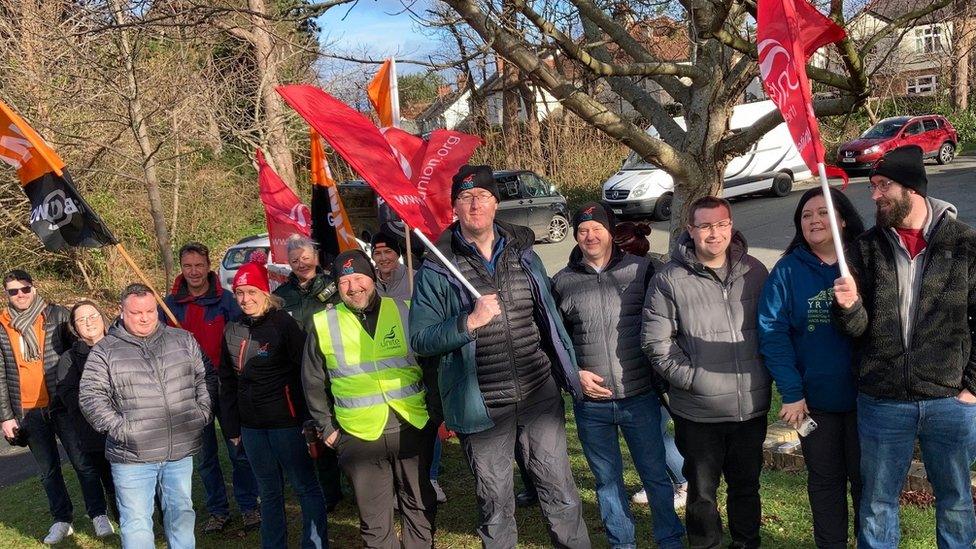
Staff at Colwyn Bay were keen to emphasise that they were taking action for more reasons than just pay
Despite the strikes, Mr Munn said the union has put in place a "comprehensive plan" to allow members to respond to the most urgent 999 calls, but advised the public to only call an ambulance if absolutely necessary.
Welsh Ambulance Service chief executive Jason Killens said staff would be under "significant pressure" on Monday despite the assistance of around 20 military personnel.
"Today we're expecting in excess of half of the workforce to be taking strike action," he said.
"There is no doubt that less serious patients will wait longer, and it is possible we may ask some patients to make their own way to the emergency department.
"Government have clearly been negotiating with the trade unions on the package and I would encourage both parties to continue that dialogue to find a compromise."
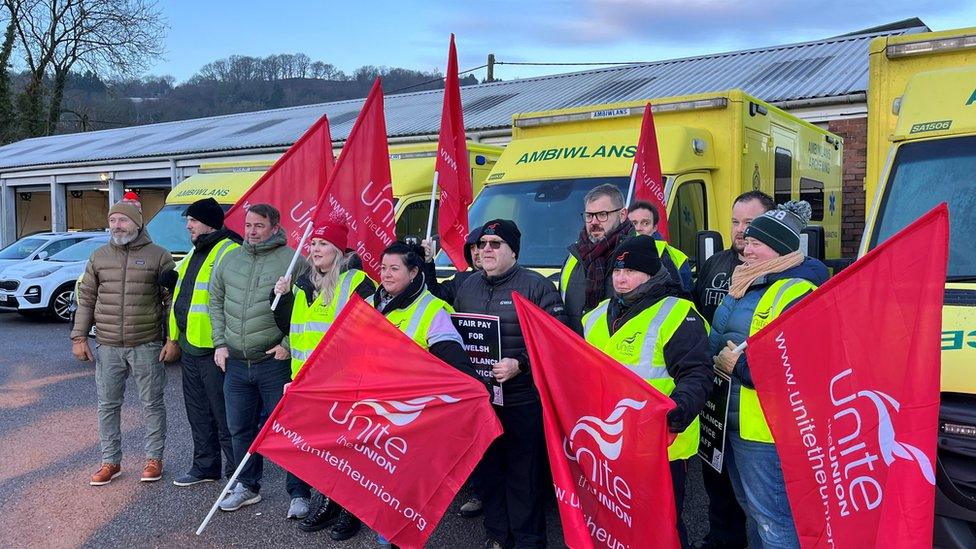
More than half of Wales' ambulance workers are expected to strike on Monday
After the latest pay offer was rejected by unions, a Welsh government spokesperson said: "This is the best offer we can make in our current funding settlement.
"We have drawn together all our available funding from across the Welsh government to make this improved offer to try and resolve the dispute.
"We will wait for the views of other health trade union colleagues who continue to discuss this offer before considering the next steps. We are committed to continuing to work in social partnership."

BBC WALES INVESTIGATES: The subjects affecting the lives of people in Wales
A CAREER CHANGE WITH A DIFFERENCE: Police new recruits adapt to life on the beat

- Published17 February 2023

- Published6 February 2023
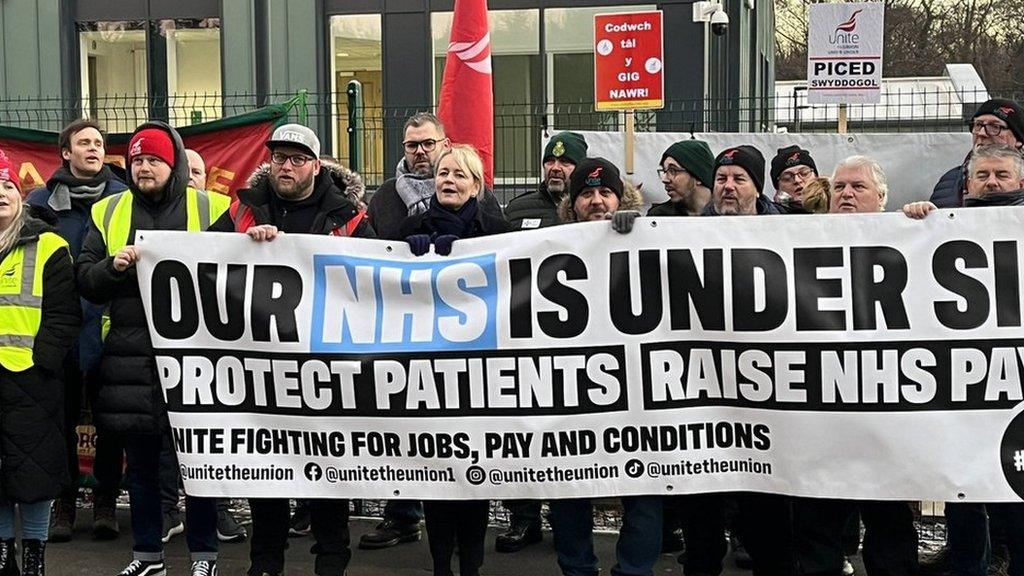
- Published18 February 2023
